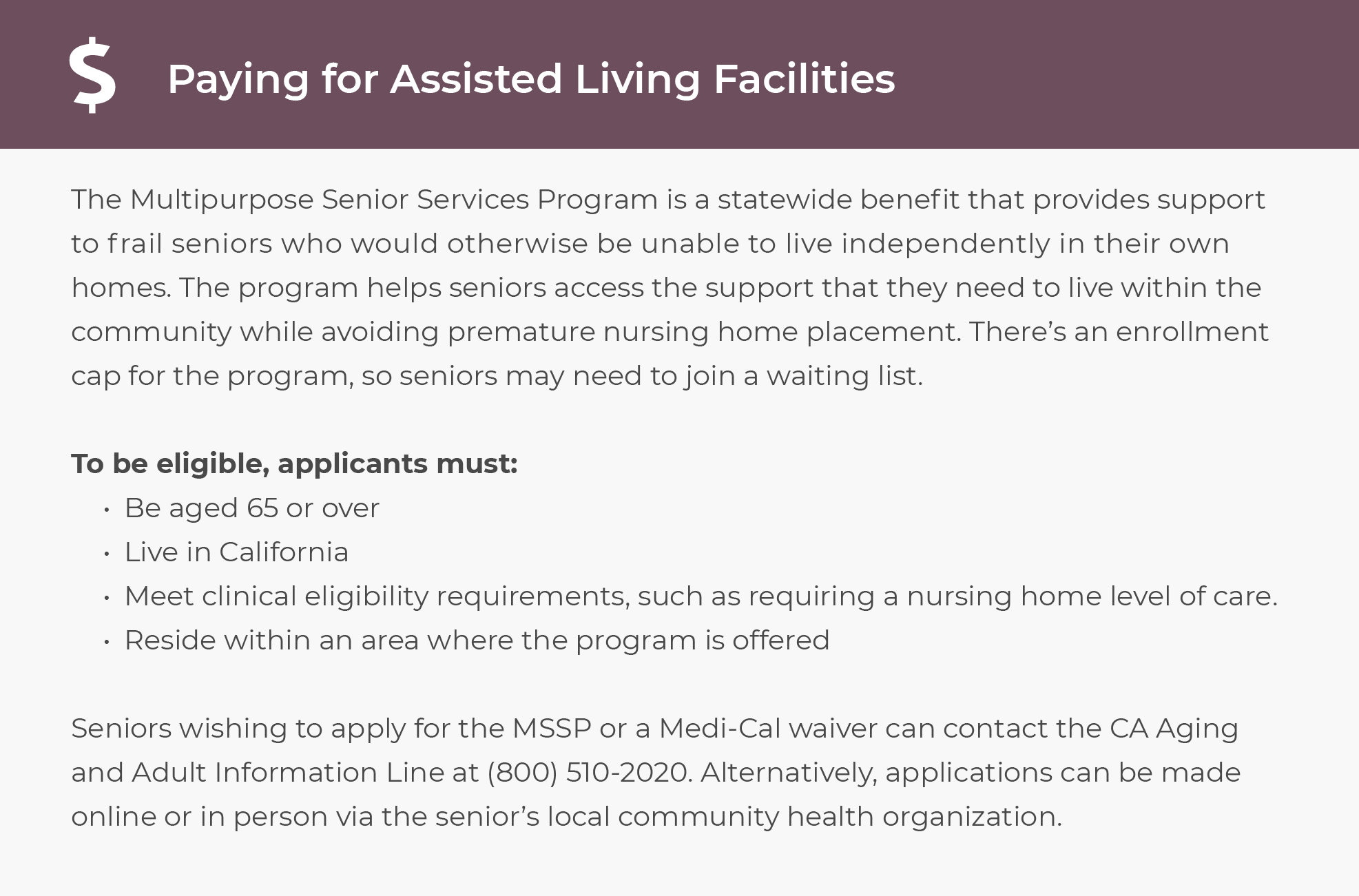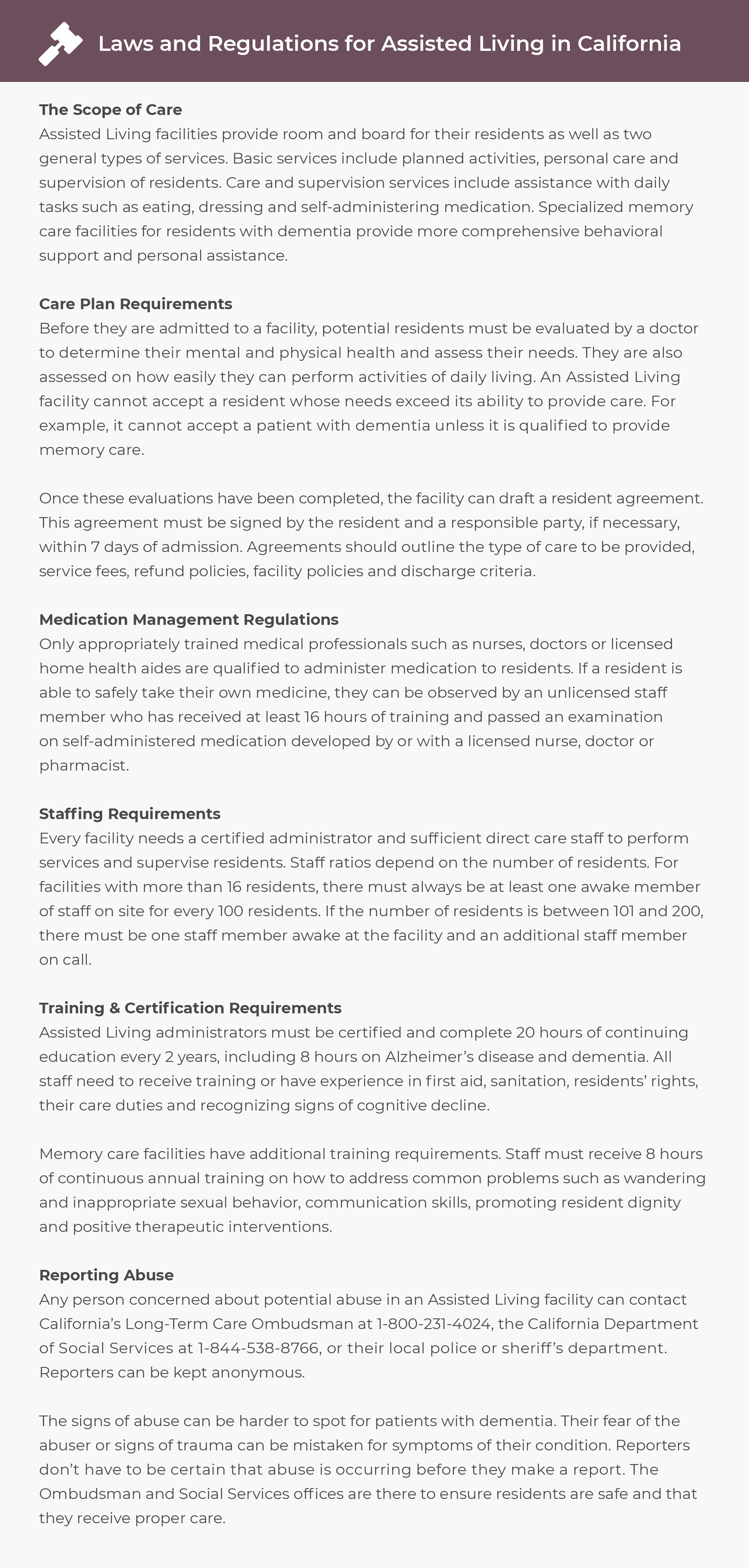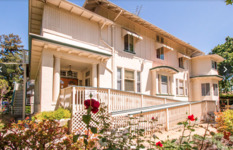Redwood City, CA, is in the Bay Area midway between San Francisco and San Jose. Seniors comprise almost 13% of its 84,000+ residents, which is below the national rate. However, Redwood City is part of the AARP Age-Friendly Network, which implies a commitment to making the city as senior-friendly as possible. Aspects of the city that may appeal to seniors include its below-average rates of crime and a favorable climate, allowing plenty of days for outdoor exploration. Local medical facilities include Sequoia Hospital, ranked fourth in the San Francisco Area.
Seniors struggling with daily living chores may find that assisted living gives them the support they need to thrive. Assisted living facilities are homelike, and the staff is trained to provide personal care, including managing medications. Meals are freshly prepared three times daily. There’s often a strong sense of community, with staff regularly organizing social events for residents. Common amenities include beauty salons and libraries. For these services, Redwood City’s median monthly fee is $6,319, which is almost 17% above California’s average cost statewide.
This guide explores assisted living and its costs in Redwood City in relation to other Californian cities. It also lists some free and low-cost resources for older residents in the area.

What a re the fastest growing jobs in the Senior Care industry and its’ predicted growth?
Direct-care workers - CNAs, Home Health Aides - are expected to be the largest occupational segment by 2020. 2010 Bureau of Labor StatisticsHundreds of thousands of American seniors utilize assisted living, a figure that is only growing. For these seniors, assisted living combines residential housing,assistance in daily activities, and some healthcare. These communities also strive to provide an atmosphere that is comfortable and engaging for their residents… Read More >
COVID-19 restrictions and rules for Assisted Living Facilities are typically set by the state – to see the rules in your state, you can read our guide to Assisted Living in California. Keep in mind that there may be other policies that communities put in place to protect their residents, so you should contact your local community for more information. Additionally, you can contact your local Area Agency on Aging to learn more – find contact information here.
Genworth’s 2021 Cost of Care Survey reveals the median monthly assisted living fee in Redwood City, based on 44 hours of care, is $6,319. However, the type of care provided can also factor into the fee, so this should only be considered as a guide.
At $6,319, Redwood City’s typical senior pays $1,069 per month more than the average Californian ($5,250). They also pay more than the typical American ($4,500) by around $1,819 per month.
Redwood City’s median fee of $6,319 is among California’s highest — although not as expensive as some cities, such as Santa Rosa ($7,048). Major Californian cities with more affordable fees include San Jose ($6,000), Sacramento ($5,225), Los Angeles ($5,250) and San Diego ($5,475). The least costly city is Madera at $3,828.
Note: Data for Redwood City was unavailable, so data for the nearest city, San Francisco, was used instead.

Since not everyone can afford to pay for assisted living out-of-pocket, it’s important to find alternative methods to help make assisted living more affordable. Some of these options include:
For more information about your options for making assisted living more affordable, visit our guide to Assisted Living in California.
| Resource | Contact | Service |
| Veterans Memorial Senior Center | (650) 780-7270 | Veterans Memorial Senior Center administers an array of programs designed to improve fitness and stimulate the mind. Residents aged 50+ are welcome to participate in activities such as restorative yoga and tap dancing. There are also educational classes and specialist clubs, such as Native Daughters of the Golden West. |
| Ombudsman Services of San Mateo County | (650) 780-5707 | The Ombudsman is a state-sponsored program that advocates for seniors residing in licensed care facilities. The free service promotes higher standards and investigates complaints made by residents, their families or third parties. Ombudsmen negotiate solutions with care providers but will escalate a complaint if they suspect criminal behavior. |
| The Legal Aid Society of San Mateo County | (650) 558-0915 | The Legal Aid Society of San Mateo County is a public interest law firm. It provides free legal advice, counsel and representation to seniors on low incomes who need help with civil law matters. This includes elder abuse, government benefits, simple wills, consumer law and power of attorney. |
| San Mateo County Health’s Aging and Adult Services (AAS) | (800) 675-8437 | AAS manages several programs to help seniors remain within the community and avoid nursing home care. These include Multipurpose Senior Services, which is for adults aged 65+ eligible for Medi-Cal. There’s also the Representative Payee Program, which helps people on government benefits manage their finances. |
| San Mateo County Veterans Services Office | (650) 802-6598 | The team at San Mateo County Veterans Services Office can help vets and their families get local, state and federal benefits they’re entitled to. They can also assist with service-specific requests, such as burial benefits and military records. Additionally, they can help eligible vets apply for VA Aid and Attendance. |
| Center for Independence of Individuals with Disabilities | (650) 645-1780 | The Center for Independence of Individuals with Disabilities is a nonprofit that operates a durable medical equipment loan program in San Mateo County. It’s open to all residents with short or long-term mobility issues, and it can sometimes deliver. Typical equipment loaned includes wheelchairs, rollators, walkers and electric scooters. |
| Osher Lifelong Learning Institute | (415) 817-4243 | The Osher Lifelong Learning Institute exclusively helps adults aged 50+ access an array of courses designed for older learners. With San Francisco State University, it administers an array of in-person and online courses, lectures and interest groups. Course fees vary, but the lecture series is free. |
Assisted Living Facilities in the Redwood City area are required to follow a set of rules and regulations that are determined at the state level. For an overview of those rules and regulations, see the information below. For more specific information, talk with your local community or Area Agency on Aging.

























